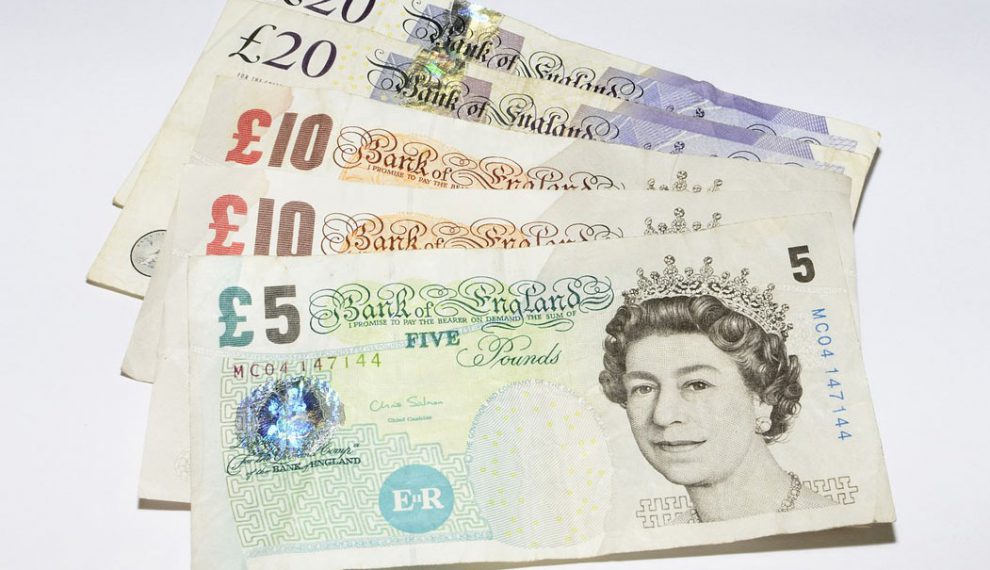By CNBC : Britain's benchmark stock index has soared by over a fifth since the post-Brexit referendum low it reached in late June, yet some believe the stunning momentum is soon set to fade.
The rally has been largely driven by the plummeting British pound since the Brexit vote which had fallen by as much as 19 percent against the U.S. dollar by its mid-January nadir and currently hovers around 12 percent lower. With around 70 percent of the index's constituents earning a significant portion of their income overseas, company results have been flattered by the tailwind accompanying the translation of these earnings back into the weakened sterling.
Yet the currency pushed up through the psychologically important $1.30 mark on Thursday following much stronger than expected retail sales data for April and is around 5 percent higher since year end after a bumpy start to 2017.
Until the stock market's slippage in the last couple of days, recent weeks had seen both the FTSE 100 and sterling edge higher for the first time in a while, observes Jonathan Loynes, chief economist at Capital Economics in a note on Tuesday.
"This suggests that both the stock market and the currency have benefited from a favourable re-assessment by investors of the likely economic effects of Brexit. But it might also point to a limit on the scope for the FTSE to carry on rising," he argues.
Loynes believes that the Federal Reserve (Fed) may raise rates faster than the market currently expects, giving a further lift to the U.S. dollar against the British pound, which could return some of the currency tailwind to the index. However, he also sees scope for the Bank of England (BOE) to raise rates ahead of market expectations, thereby negating such an effect.
Moreover, the chief economist points to the weakening of the British economy which has begun to rear its head more incontrovertibly in recent data, as having a potentially bigger influence on the market's trajectory ahead.
"Not only did GDP (gross domestic product) growth decelerate in the first quarter, largely due to slower real household spending growth, but the latest inflation and average earnings figures confirm that the squeeze on real incomes has since intensified," Loynes explains, before giving his call for levels.
"We stick to our end-2017 forecast for the index of 7,500 – a whisker below its current level – before further upside growth surprises lift it modestly higher to 7,750 in 2018," he proposed.
Yet the market still has lots of factors driving it which are fairly favorable and outweigh the negative drivers, according to Paul Mumford, senior investment manager at Cavendish Asset Management.
"As far as the market is concerned, we've had an initial re-rating. I can't imagine the index will race ahead from this point. It may stabilize or it may even come back a little. It doesn't always move in a straight line," he said in a phone call with CNBC on Thursday.
However, given current yields, equities – with their dividends and capital growth potential - will continue to look attractive versus other mainstream alternatives for investors such as pension funds, who always have new funds to invest, he added.
"The inflation trend will be a more important factor ahead. If inflation is at 2.7 percent and gilt yields fairly low with the 10-year currently hovering around 1 percent, equities will be more attractive than bonds even at current index levels," Mumford asserted.
Rather than looking at the index as a whole, now could be the time to go back to company fundamentals, says Tom Moore, investment director for U.K. equities at Standard Life Investments.
Moore notes that a quarter of FTSE 100 companies now trade on a price-to-earnings multiple of above 20x, affirming, "That's not a great starting point for an investment."
Yet another quarter of the index's constituents now trade below 12x, Moore told CNBC's Squawk Box on Thursday, saying within that universe there are stocks generating lots of cash and paying out lots of dividends.
"There's momentum in this market so people want whatever is hot. At the moment, in the U.K.…the industrial stocks are falling quite dramatically on a risk-off day like yesterday. Those stocks are trading on 20x…They have cyclical earnings that at some point will fall. That's not a great combination," he opined.
"Go back to the basics of the business models. These business models may not be sexy…these are not high growth stocks but they are churning out cash, they've got great market positions and they have a really sticky customer base," Moore advised.
